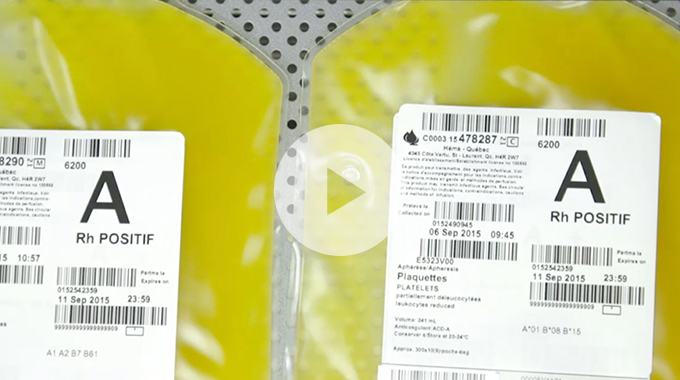Tests conducted
Blood donation: what happens after?
 |
Héma-Québec analyzes all the blood donations it collects to detect blood-borne diseases:
- hepatitis B et C;
- human T-cell lymphotropic virus (HTLV I/II);
- syphilis;
- human immunodeficiency virus (HIV);
- West Nile virus (WNV):
- this test is conducted systematically during the epidemiologic season; outside of this period, it is only performed if the donor has travelled outside of Canada in the past 56 days;
- Chagas disease:
- this test will be conducted for donors if they, their mother and/or their maternal grandmother were born in a Latin-American country (including Mexico) or if they have spent 30 consecutive days or more in one.
There may be situations in which these tests are not conducted (e.g., damaged sample). In this case, the blood donation is destroyed without further analysis.
In the event of an abnormal result:
- the donation is destroyed;
- the donor is notified and his or her results are kept confidential, but are shared with Canadian Blood Services to determine the length of time which he or she cannot donate;
- the local Director of Public Health will be notified of a positive result in cases where the law requires it.
Other tests conducted:
- blood groups (ABO, Rh and, if necessary, other blood groups);
- cytomegalovirus (CMV), as needed;
- bacterial culture of platelets;
- hemoglobin type, if applicable.
